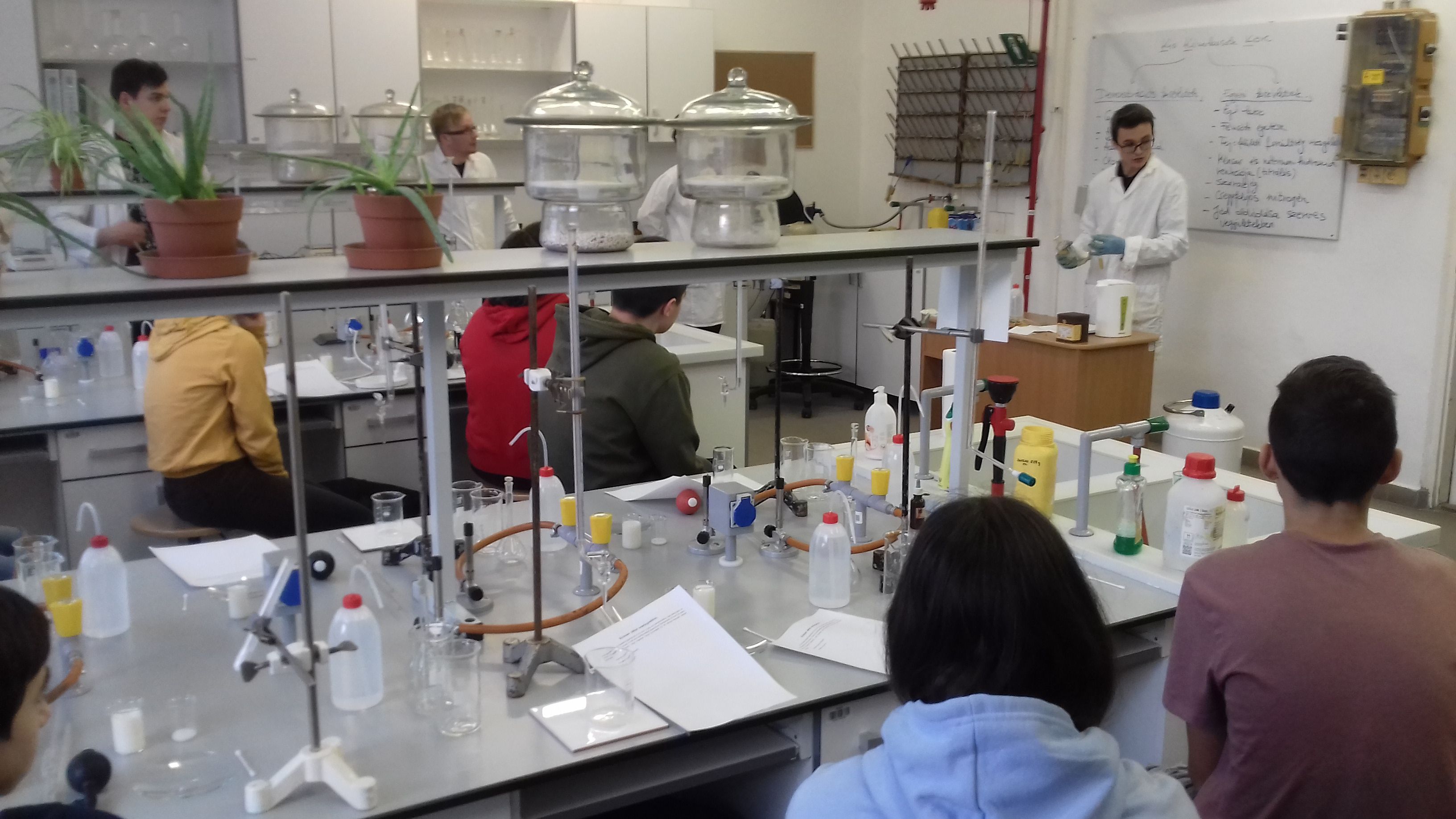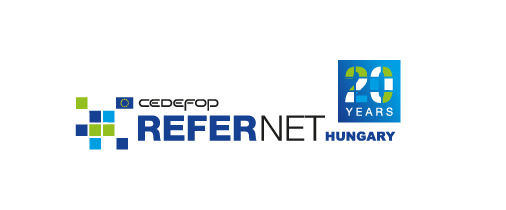
IVET programmes and institution types according to Act LXXX/2019 on VET
According to the provisions of Act LXXX/2019 on VET which entered into force on 1 January 2020, from the academic year 2020/2021 has considerable transformed the training structure and content of the upper secondary VET institutions and programmes, thus their name is also changed.
The previous vocational grammar schools (szakgimnázium) are renamed Technicums (Technikum) and they provide five years of combined general education and VET with a possibility to have a preparatory foreign language year. After finishing the Technicum students will receive a secondary school leaving certificate and a technician diploma, thus it combines the benefits of a secondary grammar school respective upper secondary and post secondary VET programmes acquiring a vocational occupation and a HuQF (MKKR) level 4 secondary school leaving certificate. In the first two year (grades 9 and 10) students learn general subjects and within the framework of initial sectoral education common contents of the vocational occupations affiliated to the same economic sector. The content of general subjects are the same as in the general grammar schools. After two year sectoral foundation finishing the second year of the Technicum students will take a basic sectoral exam, which enables them to continue their specialised vocational studies in the next three years (grades 11, 12 and 13) or, if they leave the technicum programme, to perform a job established in the training and learning outcomes (KKK) requirements.
The specialised vocational studies beside the general education subjects include specialised vocational education and training. The technician diploma awards a technician occupation listed in the Register of Vocational Occupations (szzakmajegyzék) and enables its holders to continue their studies in the higher education. In case of a successful professional exam graduates from Technicum receive 30 credits, which they can use in their higher education studies if they choose the same sectoral specialisation. The validation of these 30 credits is not automatically, the candidates have to take a specific examination assessing the skills and knowledge previously acquired. If higher education institutions elaborate common VET programmes with Technicums graduate students instead of a technician diploma will receive a qualified technician diploma.
The teaching content of the Technicum is based on programme curricula worked out on the basis of training and learning outcome requirements (Képzési és Kimeneti Követelmények) defined by the Ministry for Innovation and Technology for each basic occupation listed in the Register of Vocational Occupations. Each VET institution has to work out a local professional programme, and in case of dual programmes a training programme too. The programme curricula cover only 80-85% of the teaching hours the remaining 15-20% can be filled and grouped freely.
Graduates from the grammar schools will be able to take part in a two years technician VET programme to acquire a technician diploma.
The previous secondary vocational schools (szakközépiskola) will be renamed vocational schools (szakképző iskola) with a 3 year training programme structure combining general education and VET with the possibility to have a preparatory year of career orientation development or basic competences development programme (Dobbantó program – Springboard school class programme). In the first year (grade 9) students will learn general education subjects and within the framework of initial sectoral education common contents of the VET professions affiliated to the same economic sector. After one year sectoral foundation finishing the first year Vocational School students will take a basic sectoral exam, which enabled them to continue their specialised vocational studies in the next two years (grades 10 and 11) obtaining a qualification. Graduates can enter the labour market or choose to obtain a secondary school leaving certificate in Technicums, but only in a 2 year long part time (evening or distance) learning programmes.
The name of vocational schools (szakiskola) will not be changed but to emphasize its content and to differentiate from the newly renamed Vocational Schools we will refer to it in the future as Special Vocational Schools. They offer 2 or 4 years skills development programmes or only practical skills development to SEN learners. Special vocational schools can teach all vocational occupations listed in the Register of Vocational Occupations and all vocational qulifications based on programme requirements. They can teach based on special framework curricula. Special vocational schools are subject of the Act on National Public Education.
Bridging programmes are replaced with ’Dobbantó” programme (Springboard School Class Programme) and School workshops programmes (műhelyiskolai program) which will be introduced from the academic year 2020/2021 in the Vocation Schools and Special Vocational Schools.
Orientation year: a competency-developing year which is addressed for those young people who are uncertain in their career choice or who finished their primary school with lack of competences. Its aim is not to repeat the primary school curriculum, but rather than, based on the assessment of the student competencies to deepen their self knowledge and provide them career orientation and guidance. The condition for the student to entry upper secondary VET programmes is to possess those basic competences which are basically needed to successfully finish a VET programme and obtain a qualification.
- .The aim of the orientation (basic competence developing year) in the frame of the Springboard school class (Dobbantó program), is to offer possibility for 15 to 25 years old young people with behaviour and learning disorders or who have already dropped out of education and training or are about to leave the system. The programmes offered in special vocational schools enabled them to find the best way to return to the school system or to the world of work and to move on toward a successful individual career.
- In the School workshop programme (műhelyiskolai program) those young people can fulfill their VET studies who
a) does not finish its basic education and has finished the Springboard programme of the vocational school or
b) finished its basic education and passed its 16 years of age.
The school workshop programme prepare disadvantaged students for obtaining a partial-profession, which has to be organized in practical workshop or in work conditions in formal education, in a group of 5 students. The duration of acquiring a partial qualification is minimum 6 months and maximum 24 months with no regard to the academic year order. There are no general subjects. All knowledge bounds to the partial qualification, what the student acquires from his/her master. The teacher supports the education as a mentor.
The Ministry for Innovation and Technology is responsible for the management of all vocational occupations, but there are ministries responsible for a certain sector, for example the Ministry of Human Capacities is responsible for the healtcare and artistic sector. In the healthcare sector the training system and the structure of VET institutions follow the training system and institutional structure of the other 23 economical sectors. In case of artistic vocational programmes remain the old training system and structure (vocational grammar schools). Artistic vocational programmes are subject of the Act on National Public Education but they prepare for a profession regulated by the VET Act. Teachers who educate them are further subject of the Act on National Public Education and students are not entitled to finacial incentives available in the other VET programmes.
